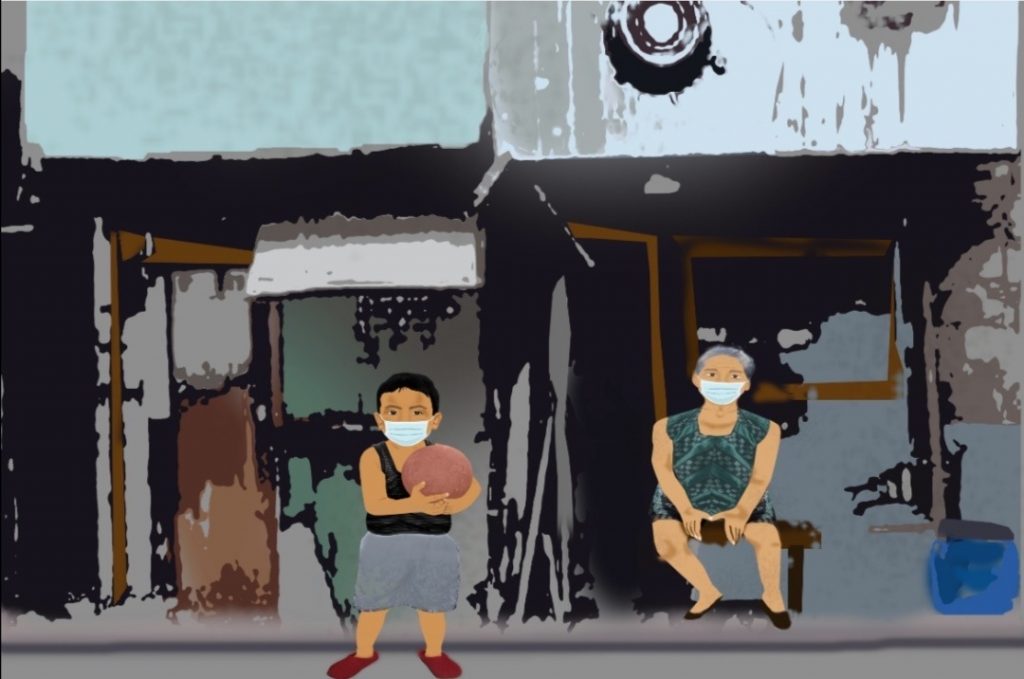STATEMENT: Don’t overlook the needs of the elderly, children during the enhanced community quarantine

It has been two weeks since the imposition of an enhanced community quarantine (ECQ) in Luzon, with some local government units (LGUs) declaring extreme ECQ in some areas. Work, school, and public transportation have been suspended in an effort to keep people safe inside their homes. Within this period, the public observed and initiated efforts to help fight the Covid-19 pandemic, including the practice of social distancing to slow down if not halt the spread of the novel coronavirus.
While the majority can probably endure the ECQ with the most basic necessities met, other sectors like the elderly and the children will need more help.
The trend, not just in the Philippines but also in other countries, shows that that elderly – because of pre-existing health conditions – are most at risk of suffering from the disease. However, having them stay home with little regard for their special needs will not protect them.
According to the Philippine Statistics Authority, the country has about 7.5 million senior citizens. 1.2 million of them are “income poor.” While LGUs implement the ECQ more strictly with the elderly, it is not clear whether the LGUs have taken their situation into consideration. Some may live with their children, but there are many who live alone with no source of food and income during the lockdown. Most will probably need to go out to buy their maintenance medication and will have no one to do this for them.
Another concern that we need to look at is mental health, especially of children. With classes disrupted, being unable to do recreational activities and to interact with other children may affect their development. School closure and home quarantine could eventually cause a psychological distress that will have a lifelong impact, if not properly managed. The fear and panic surrounding the pandemic may be too much for a child.
We are also seeing the decline of food supplies in households and increasing dependence on food packs from the government mostly consisting of processed food and canned goods. One can only imagine the effect of this on the nutritional status of children. While this is happening, there are stories of food wastage in some parts of the country. Tons of vegetables are being thrown away by farmers who worked hard to produce these, only because no one has helped them to transport these vegetables to Metro Manila. Fresh produce as part of food packs distributed to residents of Mandaluyong City as well as mobile markets organized by the LGUs of Pasig City and Valenzuela City are among good practices that can be replicated by other LGUs.
Beyond monitoring the growing number of cases day by day and telling people to stay home, the government must look with a keener perspective at the specific needs of different sectors of society and create a definitive action that will help address these needs.
The Philippine Legislator’s Committee on Population and Development (PLCPD) calls the attention of the national government and LGUs to not only think of solutions in terms of general needs. We implore LGUs to have an in-depth assessment of sectoral and age-disaggregated data. If an elderly is not provided a quarantine pass, sustained provision of food, medicines, and other essentials must be assured at all times during this ECQ.
For the children, parents must be guided on how to address their needs for survival, development, protection, and participation during these difficult times. While their formal education has been disrupted, there are other activities that can be done – both online and offline – to maintain good physical and mental health.
We also urge LGUs to strengthen their effort to communicate better with their constituents, especially the vulnerable, in determining their needs, as well as to relay these more effectively to national government agencies and other organizations.
Several LGUs have managed to adapt to the situation and come out with good ideas. This demonstrates that with good governance, needs-based and people-centered solutions are possible.#
